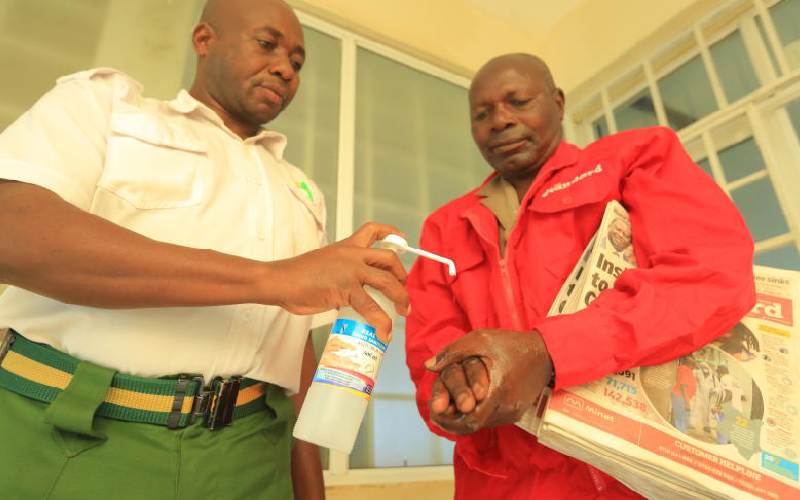×
The Standard e-Paper
Stay Informed, Even Offline

On Sunday 15, 2020 afternoon, even before the two more Covid-19 cases were reported, all sanitisers were out of stock. People were roaming open spaces and supermarkets looking for sanitisers they knew little about.







